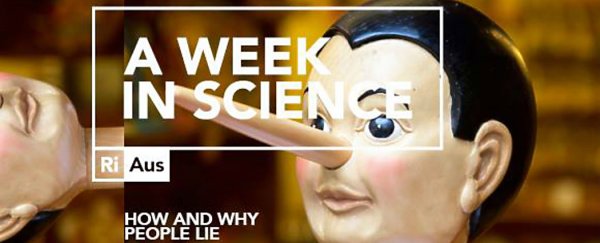
We might not like to admit it, but lying plays a pretty big role in what makes us human beings. Children first learn how to lie as young as two years old, starting off with denials of guilt and then working their way up to white lies as a form of politeness as they mature. We all do it, but we know that the vast majority of the time, telling the truth isn't nearly as bad as being caught out on a lie, so why do we do it?
According to the episode of RiAus's A Week in Science above, scientists have linked our habit of lying to our self-esteem. As soon as our self-esteem is threatened, we continue to tell bigger and more complicated lies. But all this lying means we risk deceiving not only those around us, but ourselves. Experiments show that people actually lie without realising what they're doing, and only when they see recordings of themselves in action do they pick up on all the porkies they've told.
Now, we all know that people are far more likely to lie online than they are IRL, because it's much easier to lie to strangers and people you don't have to look in the eye, but scientists have found that certain platforms elicit more lies than others. They found that people are more likely to lie in an email exchange than on an instant messenger app.
And online dating? You bet - and in this case, women have been found to be slightly less truthful than men. In situations where money is at stake, when there's a small monetary reward, men are more likely to lie their way into a win, but when the stakes get higher, men and women are both as duplicitous as each other.
But who's the most notorious liar of them all? A teenager. Find out why in RiAus's A Week in Science above.
Source: RiAus
